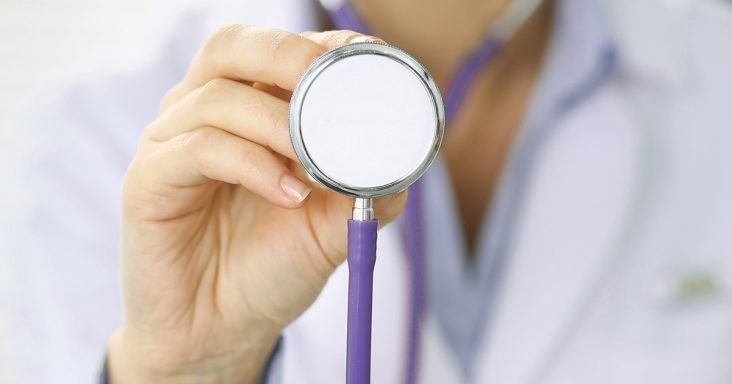Federal health official reveals grant funding for rural Arkansas, discusses business leader takeaways
by August 20, 2020 8:27 pm 662 views

Eric Hargan, deputy secretary of the U.S. Department of Health & Human Services, was in Arkansas on Thursday (Aug. 20) to announce the distribution of rural health grants and to speak with business leaders on the national response to COVID-19.
Hargan visited with Talk Business & Politics Editor-in-Chief Roby Brock to discuss in further detail what the grant funding will do and how feedback from the business community will be utilized by Trump administration officials.
TB&P: You’re here to discuss grants for rural Arkansas. What will this money be used for?
Eric Hargan: Two weeks ago, the president announced an executive order supporting rural health and tele-health. And so this is one of the first waves of announcements that we’re doing in response to that. We are awarding $300,000 to ARcare in Augusta, and that’s part of an emergency care telehealth program to expand access to providers and specialists, particularly with regard to first responder challenges, so training and education on trauma and emergency situations.
ARcare also got a $100,000 award to support the Arkansas Rural HIV-AIDS Planning Coalition. This is to help them in southeast Arkansas develop a regional approach to strengthening infrastructure and alleviating burdens on HIV-AIDS care. So they’re going to do a community health needs assessment of some peer support groups that focus on prep and other prevention strategies, evaluate diagnosis of HIV and identify available resources there at Southeast Arkansas for current testing sites. And that’s part of the initiative to end HIV by 2030.
We also awarded about $750,000 to Dardanelle Regional Medical System, and they’re partnering with Conway Regional Medical Center and they’re going to develop an accredited family medicine rural training track. That’s for rural Yell and Johnson counties. That’s to help retain physicians in those counties, so that’s two residents per year for that program. The more that you have people train in an area, in a rural area, the more likely it is that you’re going to get those physicians to stay in those rural areas.
And then finally, we’re awarding about $750,000 to the University of Arkansas medical school [UAMS]. That’s to work with health care provider partners to develop similar training tracks for family medicine residents. So one is a rural training track, and one’s for family medicine residence.
TB&P: You have been meeting with chamber leaders, business leaders in the state of Arkansas for a roundtable. What’s their temperature, what’s their mood, what did you learn?
Hargan: I think the takeaway from them is that they are in a similar situation to other business leaders nationally. They’re concerned about how they reopen businesses safely, the impact of testing availability, PPE availability. Also, they’re talking about continuing our support financially for the healthcare sector, which we’ve been doing as part of a lot of the initiatives we’ve done that Congress has enabled us to do. They want to make sure that we’re focusing on the areas where Arkansas has needs.
TB&P: Do you think anything will come out of this conversation today? Do you foresee additional money or some sort of policy change from what you’ve gleaned from these business leaders?
Hargan: Well, yes. We got a number of questions to take back to Washington on a number of issues, particularly clarifying how money can be used. I think we could clarify the flexibility around funds that we’ve distributed to places here in Arkansas, so that they’re less hesitant about using the money that we’ve given them. So I would say one of the takeaways from that is that some providers have parked money, because they’re concerned about where and how they can use the funds we’ve given them.
There were some specifics that we’ll actually have a dialogue with them after this meeting to talk about the exact question that we need to answer. I think in many cases, people would say, “Can we use this money for payroll?” Of course. “Can we use the money to buy PPE?” Yes. “Can we use the money in all these areas?” But sometimes it’s not clear what the limits are on that money.
These are grants, they’re not loans. They don’t need to be paid back as long as there aren’t mistakes made or they’re not true problems about how things are arrived at. We’ve been given $175 billion to distribute. That’s a lot of money and it’s being distributed across over a million providers, that’s a lot of providers.
